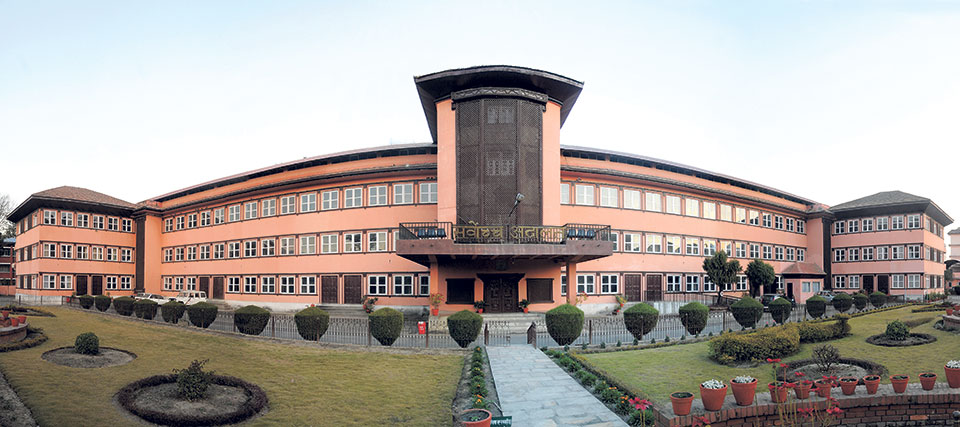KATHMANDU, May 18: Minister of Energy, Water Resources, and Irrigation Shakti Bahadur Basnet has said that it is necessary to increase the use of electric vehicles in Nepal to save the environment and reduce costs.
Speaking at a discussion program on 'Green Mobility and Tourism Prosperity' organized by Spark Cars on Friday, he said that he will initiate a policy with the government to increase the use of electric vehicles in the future.
Basnet emphasized that Nepalis should increase the use of electric vehicles not only to make the environment clean but also to reduce consumer expenditure on petrol and diesel. He said, "Electric vehicles are necessary because it costs less to drive a vehicle using our hydropower than to buy petrol."
He also mentioned that the roadmap and action plan for energy development in Nepal have been made, targeting the generation of 28,500 megawatts of electricity in the next 12 years. “To achieve this, the goal is to build infrastructure such as transmission lines and distribution systems, so the use of electric vehicles will increase in the coming years,” he said.
Import of electric vehicles increased by 600 percent last year

Basnet said that plans have been made to advance the utilization of electricity. He said, "In 12 years, the average economic growth is expected to be around 7 percent, and there will be 14,000 megawatts of electricity consumption."
He also stated that work is being done extensively to expand the charging stations required for electric vehicles. He remarked, "There was sometimes confusion like the chicken or egg dilemma, but now vehicles and charging stations are developing together." He added that 51 charging stations are being built by the Nepal Electricity Authority.
Similarly, at the program, Tourism Minister Hit Bahadur Tamang said that tourist traffic could not be increased because Nepal's infrastructure is not as developed as expected. "The investment needed for tourism infrastructure is insufficient to create a tourism-friendly environment," he said.
Governor Maha Prasad Adhikari noted that not only green energy but also green banking is being practiced in Nepal. He mentioned that Nepal Rastra Bank (NRB) has issued environmental and social risk management (ESRM) guidelines to banking institutions. He said, "They do not invest without reviewing the EIA report while investing. This shows that the environment is a big priority.”
Adhikari also pointed out that although policies are improving in the country, implementation is weak. He mentioned that through the review of the third quarter of the monetary policy released on Friday, the risk burden of loans taken for the purchase of electric vehicles has been reduced from 125 percent to 100 percent, which will facilitate the import of electric vehicles.
Environmentalist Bhushan Tuladhar highlighted that global temperatures are rising, creating severe conditions. He said that recent fires in Nepal have been exacerbated by droughts linked to climate change and that Nepal recently became the most polluted city in the world due to smoke from petrol and diesel vehicles and unorganized urbanization. He urged the state to address this issue.
At the program, Chief Executive Officer (CEO) of Cymex Inc., Sahil Shrestha, stated that electric vehicles are now very reliable and affordable. He said, "Increasing the use of electric vehicles is also good for the environment. The battery life of an electric vehicle is usually 20 years, making it cost-effective.”
Roshan Ghimire, chairman of Spark Group, said that the program was organized to promote tourism while protecting the environment. He emphasized that all sectors should focus on environmental protection. He said, “With the increase in luxury hotels and resorts, there is a lack of luxury vehicles to serve those tourists.”
This program organized by Spark Cars in collaboration with the Nepal Tourism Board was supported by BYD, IGI Prudential Insurance, Prabhu Bank, and Himalayan Everest Insurance Company. More than 200 people participated in the program, including representatives from the tourism sector, government, non-governmental organizations, diplomatic missions, multinational companies, corporates, and environmentalists.











_20230506072433.jpg)




























